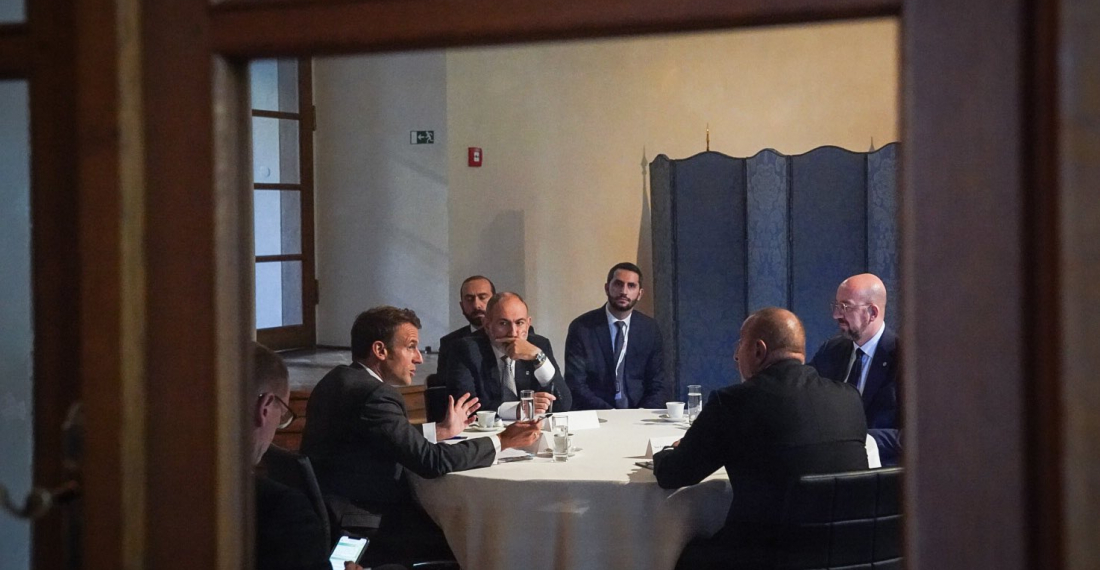After hours of negotiations, with the mediation of European Council president Charles Michel, and French president Emanuel Macron, the leaders of Armenia and Azerbaijan , Nikol Pashinyan and Ilham Aliyev, have taken a historic step towards lasting peace. Both countries have recognised each other's territorial integrity and sovereignty, and committed to tangible steps to establish peace and stability in the region.
President Macron tweeted early this morning
Tonight, Armenia and Azerbaijan confirmed their commitment to the Charter of the United Nations and the Alma Ata 1991 Declaration through which both recognize each other's territorial integrity and sovereignty.
— Emmanuel Macron (@EmmanuelMacron) October 7, 2022
The four leaders held two long sessions of negotiations on the margins of the summit of the European Political Community which was launched at Prague Castle on Thursday afternoon (6 October), after which,
"Armenia and Azerbaijan confirmed their commitment to the UN Charter and 1991 Alma-Ata Declaration, through which both sides recognize each other's territorial integrity and sovereignty. They confirmed that this will form the basis for the work of the commissions on delimitation and that the next meeting of these commissions will take place in Brussels by the end of October.
It is also understood that a number of other decisions were taken. It was agreed that the EU will deploy on the Armenian side of the Armenia-Azerbaijan border a civilian monitoring mission, for a period of two months starting from October. This mission will not deploy on Azerbaijani side of the border but Azerbaijan committed to co-operate with it as relevant. The purpose of the mission will be to build confidence and, through its reports, to support the border commissions.
The introduction of an international monitoring presence is considered to be a significant step, even if somewhat watered down.
source: commonspace.eu
photo: A snapshot of the talks in Prague between the leaders of Armenia and Azerbaijan and the Presidents of France and of the European Council (picture courtesy of @EmmanuelMacron







